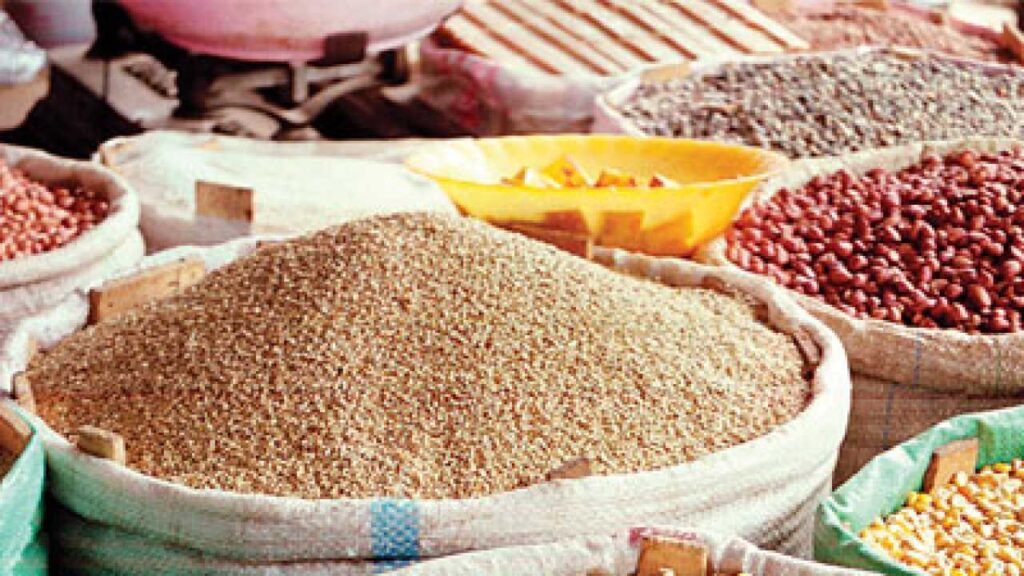CEM REPORT, ECONOMY | December 2023 saw Nigerian families grappling with food inflation nightmare, as prices soared a staggering 33.93% year-on-year, compared to a mere 23.75% in December 2022.
This relentless climb, a staggering 10.18 percentage point jump, painted a grim picture of rising hunger and hardship across the nation.
The National Bureau of Statistics (NBS) attributed food inflation to increases in prices of bread and cereals, oil and fat, potatoes, yam and other tubers, fish, meat, fruit, milk, cheese, and egg.
According to the latest data from the National Bureau of Statistics (NBS), the average annual rate of food inflation for the twelve months ending December 2023 was 27.96%, which was 7.02 percentage points higher than the average annual rate of change recorded in December 2022 (20.94%).
“It’s like everything just keeps getting more expensive,” lamented market trader Aisha Abubakar, struggling to sell her dwindling stock of vegetables. “People are buying less and less, they just can’t afford it anymore.”
In December 2023, the headline inflation rate increased to 28.92% relative to the November 2023 headline inflation rate which was 28.20%. Looking at the movement, the December 2023 headline inflation rate showed an increase of 0.72% points when compared to the November 2023 headline inflation rate.
Food Inflation Drivers
The pain was widespread, biting into staples like bread and cereals (up 39.99%), oil and fat (36.41%), and potatoes, yams, and other tubers (28.17%). Meat (29.64%), fish (25.74%), and even basic needs like milk, cheese, and eggs (23.47%) all saw significant price hikes.
Month-on-Month Misery
Even on a monthly basis, December offered no respite. Food inflation continued its relentless march, rising 2.72% compared to November’s 2.42%. Oil and fat, meat, bread and cereals, and potatoes/yams/tubers again led the charge, leaving families squeezed from all sides.
Core Inflation Concerns
The inflation story wasn’t limited to just food. Excluding volatile agricultural and energy products, “core inflation” rate increased by 1.82% on a month-on-month basis and by 4.85% on a year-on-year basis. The average twelve-month annual inflation rate was 20.76% for the twelve months ending December 2023, which was 4.74 percentage points higher than the 16.02% recorded in December 2022.
[READ ALSO] 2024 Budget: N344 billion Power Sector Allocation and Prospect of Electricity Supply in Nigeria
The highest increases were recorded in prices of passenger transport by road, medical services, actual and imputed rentals for housing, passenger transport by air, pharmaceutical products, accommodation services, and others.
This 4.85% jump over December 2022 painted a broader picture of an economy under immense pressure.
Hope on the Horizon?
Unfortunately, the data suggests little immediate relief. The average annual food inflation rate for the past year reached 27.96%, a stark 7.02% increase from 2022. Core inflation followed a similar trajectory, averaging 20.76% for the year, up 4.74% from the previous year.
Experts attribute this surge to various factors, including:
Climate shocks: Droughts and floods have disrupted agricultural production, leading to food shortages and higher prices.
Global supply chain disruptions: The ongoing war in Ukraine and other global factors have disrupted the flow of essential food imports, further pushing up prices.
Rising fuel costs: Increased fuel prices impact transportation and production costs, ultimately translating to higher consumer prices.
Currency depreciation: The depreciation of the naira against major currencies makes imports more expensive, further fueling inflation.
The consequences of this food inflation are far-reaching, impacting not just household budgets but also national stability. Rising food insecurity can lead to malnutrition, social unrest, and increased poverty.
However, some analysts have argued that the inflation spike is temporary and will subside as the economy recovers from the pandemic and the supply and demand conditions normalize.
Impact on Nigerians
This inflation is having a devastating impact on everyday lives. Families are forced to make tough choices, often sacrificing nutritious meals or other necessities to afford basic food items. The situation is particularly dire for low-income households, who spend a larger portion of their income on food.
Grim Outlook
These figures paint a concerning picture for Nigeria’s economic and social stability. With inflation spiralling and basic necessities becoming increasingly unaffordable, the potential for increased social unrest and food insecurity looms large. The government faces a critical challenge in curbing inflation and stabilizing prices to ensure a secure and prosperous future for its citizens.
The surge in food inflation is a complex issue with multiple contributing factors, including global supply chain disruptions, insecurity in food-producing regions, and rising energy costs. Addressing these issues requires a multi-pronged approach from the government, private sector, and civil society.








